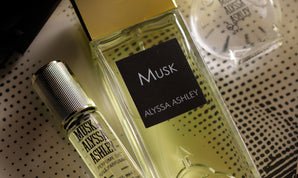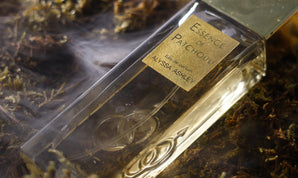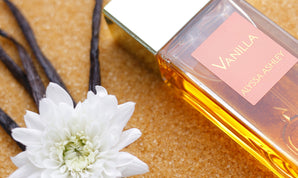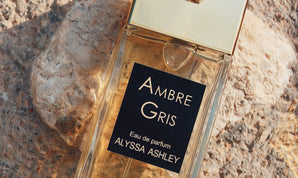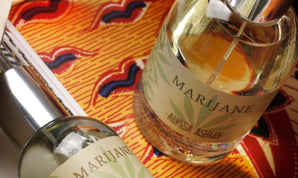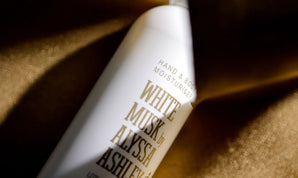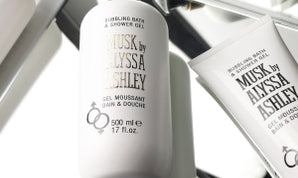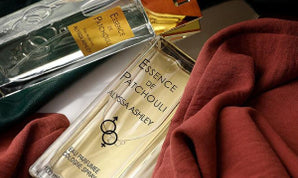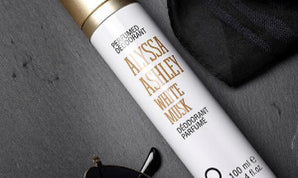January, as always, brings with it the long-awaited sales of the season, even the perfume sector enjoys it and many perfume lovers wait for this moment in order to be able to indulge in a little pleasure, and discover a new brand or formula.
In fact, the prices of perfumes can vary enormously depending on the type of perfume chosen, starting from just a few euros up to rather important figures.
But are you sure you really know what determines the price of a perfume?
The first thing I would like to clarify is that a perfume is a unique thing and its ability to make you dream is not the exclusive advantage of the most expensive one and with an attractive packaging.
Whether we then classify it as a traditional, artistic or niche fragrance is an ever fading and minor overstatement because the emotions that a fragrance can arouse in us have nothing to do with its price, for example.
It is like analyzing the olfactory profile of a raw material, the same one, but coming from different areas.
Let's take a vanilla pod as an example: a material coming from Madagascar will have different characteristics compared to the one collected in Tahiti, one will be more suitable for building a project and the other will be chosen, maybe, according to personal taste.
The contours of the argument regarding raw materials, today not very clear, allow us to make some important considerations.
The number of essential oil companies, specialized in the production of odorous molecules, is very small and can be counted on the fingers of one hand:
Here is a list of some of them:
IFF Internation Flavors & Fragrances Inc. (United States of America)
- GIVAUDAN (Swizerland)
- FIRMENICH (Swizerland)
- SYMRISE (Germany)
- SYNAROME (France)
- TAKASAGO (Japan)
- CAPUA 1880 (Italy)
Some of these companies, will supply odors for the world, including blends, capsules, synthetic and natural molecules, without making a distinction between traditional and artistic perfumery. This means that it’s very likely that we’ll find them identical in both in cheap and expensive perfumes.
Moreover, it should be said that the same fragrance companies do not only produce and distribute to the perfumery sector, these odors are also destined to fine fragrance (body), home fragrance (environment), food (aromas for food), personal care and fragrances for home cleaning and detergents in general.
Then there are exceptions: small companies, once independent, which deal almost exclusively with the production of natural, with inevitable high costs and low yield of raw materials. For this reason, only brands with significant investment capacity can count them among their suppliers.
This is the case of Laboratoire Monique Remy in Grasse, founded in 1983 and specialized in natural products of the highest quality. It is no coincidence that the company is controlled by IFF, one of the multinationals I listed above.
If the difference isn’t determined by the odorous molecules, then the nose that creates the fragrances won’t be considered (in most cases, but not in all) which is the discriminating factor. In fact, creators, or companies that create these olfactory projects with in-house noses, will exclusively draw from those sources of raw materials provided by one of those few companies listed above.
Moreover, even noses, like odor molecules, are not reserved exclusively for one sector of the perfumery: except for rarities, there are no noses that work only for traditional perfumery (the big names in fashion) or only for niche perfumery.
True, some have exclusive contracts, but the others will build scents for the small independent brand, as well as the big names of well-known brands.
Case in point:
Alberto Morillas created almost all of Gucci's latest fragrances, but he is also the creator of fragrances destined for artistic perfumeries.
It is essential to remember that a company whose main market segment is fashion is unlikely to take care of its fragrance segment. They are almost always branches licensed to the usual well-known.
Who are the usual knowns?
- L’OREAL
- LVMH
- PUIG
- ESTEE LAUDER
and a few others.
We can also assume that the purchase of the raw material alone, to make the perfumes, may be unique and abundant, to be spread across all licensed brands.
Overall, perfume creators are many, but the ones that are best known and that everyone wants are always the same. Declaring the name of a nose, now a star, rightly or wrongly, could make it easier to push a product. The association of a perfume or a brand with a well-known nose can inevitably raise the price of the final product and convey the idea of it being of higher quality.
In my opinion, other requirements are needed.
Niche perfumes and market players
The interest of the world's leaders in the luxury sector in niche perfumery, which has been nibbling away at an increasingly large slice of the market, is evident. The field of artistic perfumery is in full fertilization and is constantly being groomed.
This can be seen from the numerous acquisitions in recent years: more and more often, people give in to courtship, with the promise that nothing will have changed in the DNA and mission of a small company.
Therefore, in the parameters that determine the value of a fragrance, we often include the brand itself, the fact that it belongs to the "niche" as a pure and integral segment of perfumery.
Obviously, this is not the case. Today, many brands that once belonged to the "artistic perfumery" have been acquired by multinational giants. An example? Today, LeLabo belongs to Estée Lauder, while Artisan Parfumer belongs to Puig and the acquisition strategies in the beauty sector continue at full speed.
Do you know who Dior's new nose is?
After François Demachy, it was time for the talented Francis Kurkdjian to take over, the one who at the age of 24 created Le Male, the famous perfume contained in a men's bust.
In 2009 Monsieur Kurkdjian created his own brand Maison Francis Kurkdjian, dedicated to niche perfumes, and as expected, since 2017 the majority share has passed to LVMH.
The world of perfumes is so small, isn't it?
Now that I've revealed a few little "insider" facts, you surely have more tools in order to assign other values that are not financially related when choosing your next fragrance and really let your senses guide you.
